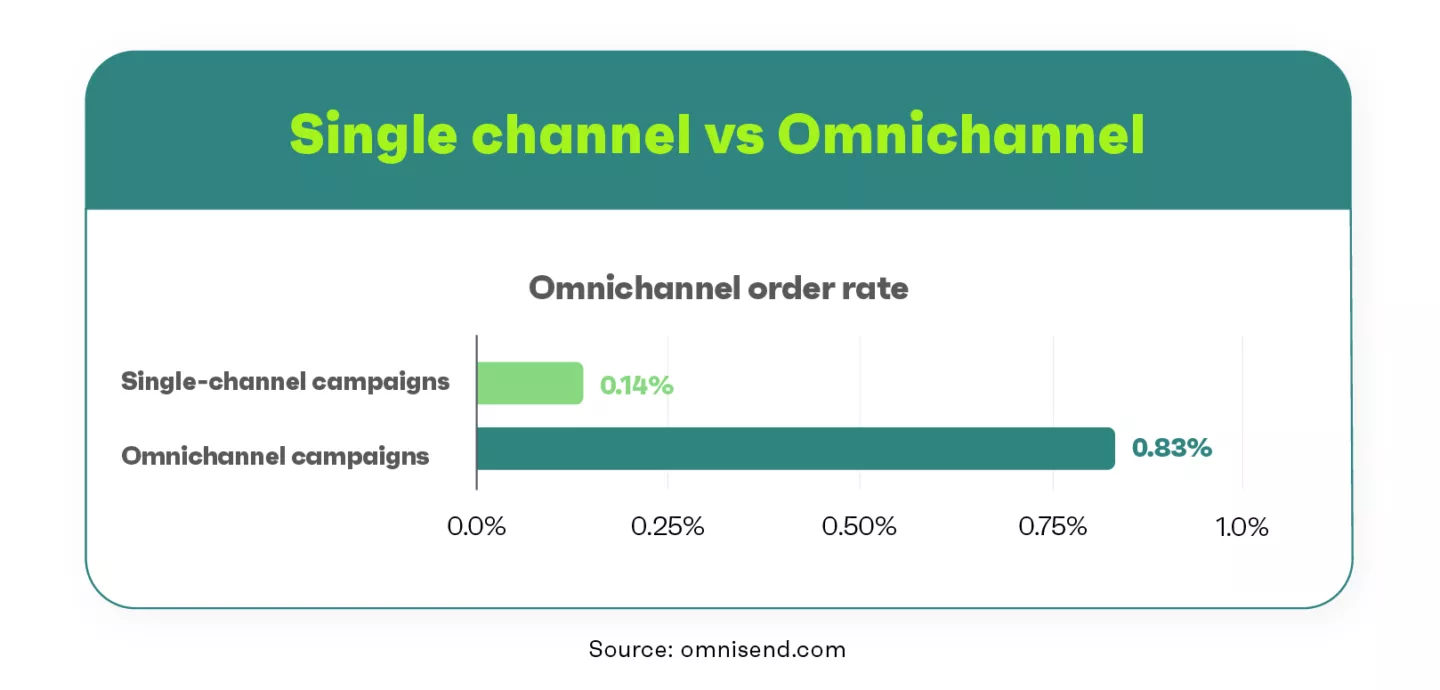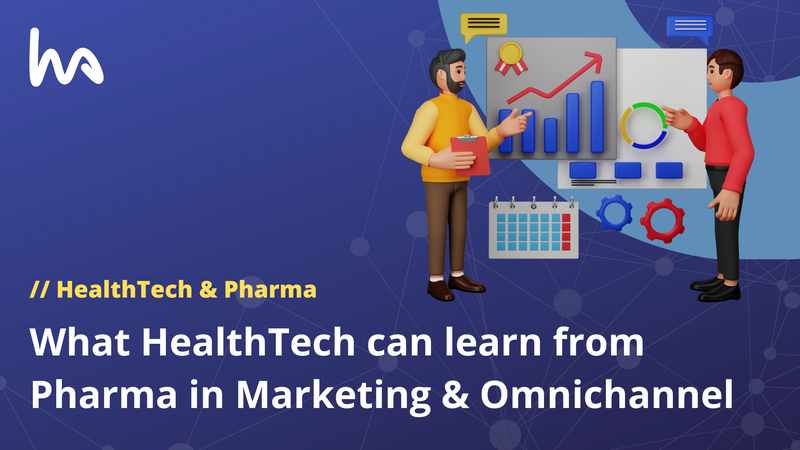This article is a bit of a brain dump and if you do read this, I'd love to hear your thoughts - hi[at]hussainahmad.co.uk!
Remember those retail stores that refused to sell online back in the day and later were forced to go online.
The pharmaceutical industry is facing a similar challenge. In the past, it was possible for pharma companies to reach their target audience through traditional channels. But today, HCPs are increasingly using digital channels, and pharma companies that don't embrace omnichannel marketing strategies are at risk of being left behind.
The effectiveness of omnichannel marketing has been proven in virtually every industry. Even pharma companies are now reporting higher ROIs from omnichannel marketing efforts when compared to traditional marketing campaigns.
For example, take a look at the difference between omnichannel and unichannel marketing results:

Yet, when you look at the Pharma industry, the adoption of omnichannel is coming along at a snail’s pace.
We are still on the fence.
To pave the way for omnichannel marketing, I’m digging a bit deeper in today’s article. With hopes to uncover the roadblocks that aren’t letting the industry grab this opportunity to rake in way better results from its marketing investments and efforts.
State of Omnichannel in Pharma
While it’s hard to tell the exact percentage of pharma companies that have gone omnichannel, the industry is giving clear signals that it isn’t ready.
For example, Digital Pharma: Unlocked recently held a panel discussion on omnichannel marketing in the pharma space and it was titled, “What the F*** is omnichannel - and will pharma ever get it right?” (Be sure to give it a watch). The title itself reveals a lot about the stage of adoption at which the industry stands right now. Try a quick search and you’ll easily find a number of similar examples.
Most of the discussion in the industry revolves around the basics such as what exactly omnichannel is, how is it different from multichannel marketing, what the ROIs look like, etc.
Advanced discussions like fine tuning your omnichannel strategies and comparing different omnichannel approaches are still a little further than we'd like to think.
What’s Stopping Pharma From Going Omnichannel?
We all know that omnichannel is still in its nascent phase in the pharma industry but we need to dig out the real reasons behind this reluctance.
Based on my experience, supporting omnichannel marketing campaigns, here are a few reasons that I’ve seen cause a hurdle in a shift towards omnichannel.
Siloed Organisational Configurations
Politics within a pharma company always become a hurdle in going omnichannel.
And it's not necessarily the bad type of politics, but the organisational structures and the divide.
At the highest level, organisations make decisions that are then passed down to regional, and local teams. The corporate communications team works on one strategy, the brand communications team works on another, and the medical team has its own set of requirements. Each of these teams is likely working with its own agency, which is understandably focused on generating revenue. Agencies can do this by working in silos and keeping their immediate clients happy.
All of this means that we're still largely operating on a "multichannel marketing" framework. This approach involves using multiple channels to reach customers, but each channel is treated as its own silo. This can lead to disjointed experiences for customers, as they may see different messages depending on which channel they use.
Younger pharma companies might find it easier to make this shift because older or larger companies have taller structures with more ‘executives’ resulting in more paper pushing. It’s hard to propose the idea of changing the entire marketing mindset of the company.
Lack of Evidence
Since omnichannel is not the industry standard, it is an uphill struggle for marketers to persuade company executives towards an omnichannel approach to marketing. Marketing heads are often asked for case studies from the industry which is a rare occurrence so far. It’s rare to see omnichannel success stories in pharma only because there are only a handful of companies that have adopted it.
Data Privacy
Omnichannel marketing generates tons of data across all digital and offline channels. If not managed systematically, the risk of a data breach goes up. And executives are just not ready to talk about anything that even has a chance of calling unnecessary attention from the regulators. This fear always keeps pushing this discussion out of meetings.
The Stakes are High
It takes an insane amount of time and investment to develop new products. According to Deloitte, it takes a pharmaceutical company an average of 7.1 years and $2.3 billion to bring a new drug to the market. That's $33,000 a day for 7 years!
Finally, when it comes to marketing those products, the top management naturally fears taking any risk of shifting to an entirely different approach to marketing.
What Can Be Done?
As we know, there’s a lot at stake when it comes to marketing in pharma. There are years of hard work, sleepless nights (?), and billions of dollars at stake.
The decision-makers are not ready to take risks, especially when there is little industry evidence to show. And to be fair, as an industry, we still haven't truly defined ‘whatever the f*** omnichannel’ is. In this case, take a deep breath (even sigh silently if it helps!) and stop selling hard. Maybe we need to understand the top bunch’s fears first. Realise their stressors, instead of adding this decision to the list of their problems, let's offer solutions.
Look for opportunities to bring different teams (i.e. Medical and commercial) together for designing a campaign. Including medical professionals in the design process of a marketing campaign can help you get a better overall response from the HCPs.
And don’t forget, measuring the success is only possible only if you’ve got an effective data analytics setup in place. By using that data, you can show them how omnichannel is directly responsible for the enhanced results.
Patience along with a gradual shift toward omnichannel marketing can prove to be an effective strategy, but it only really works if we all work together! rather than rushing in and overwhelming different teams with new decisions. Let’s keep advocating omnichannel until the day it becomes the norm for the pharma industry.





